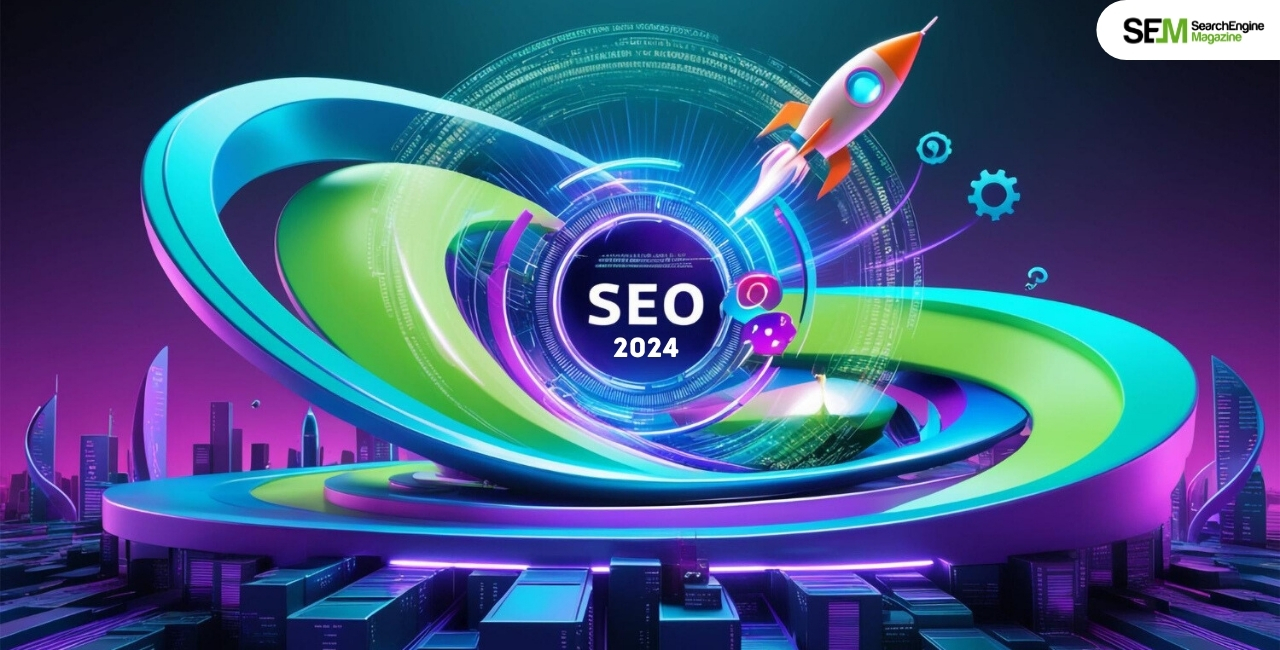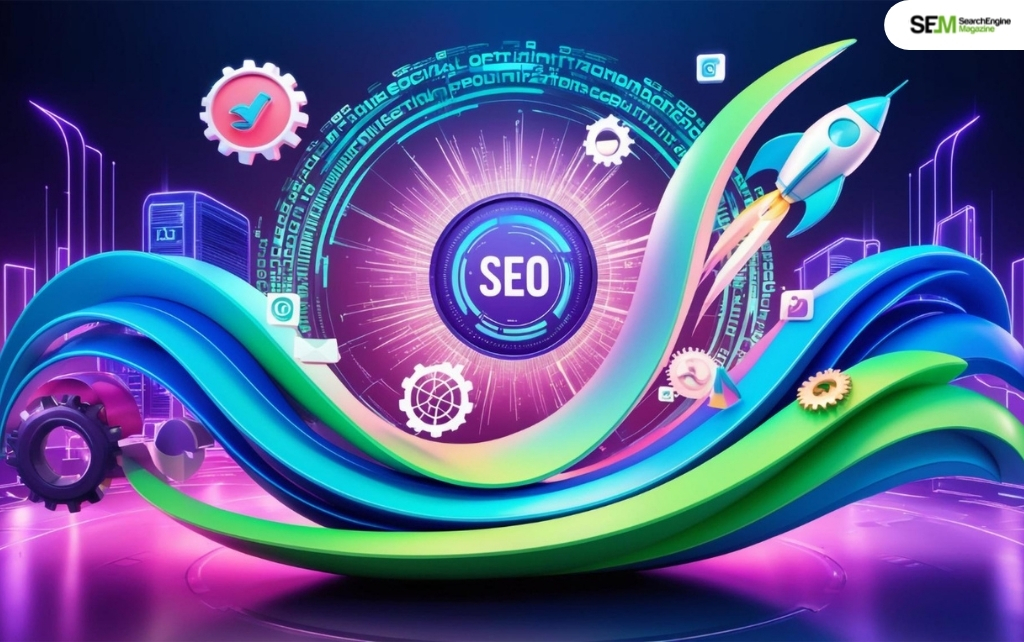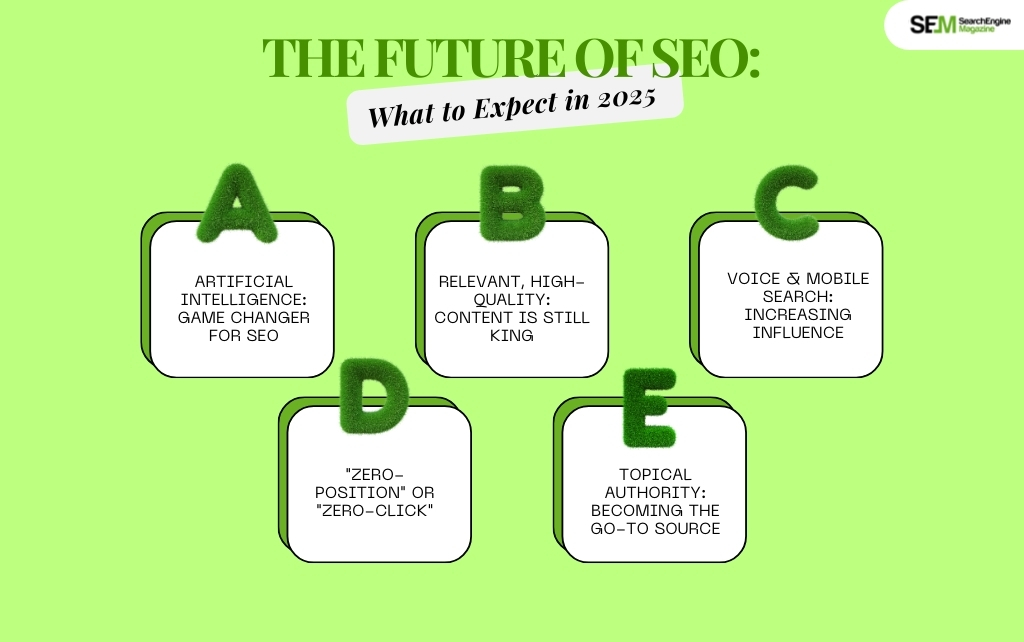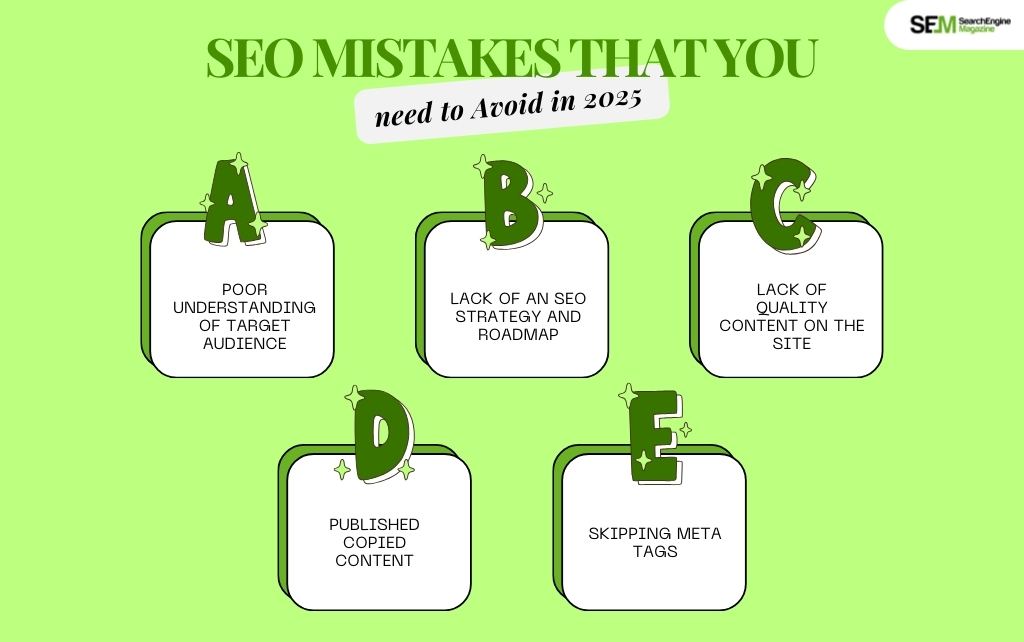How To Know If Someone Blocked You On iMessage? 5 Secret Hacks!
Apr 16, 2025

Apr 16, 2025

Apr 16, 2025

Apr 15, 2025

Apr 11, 2025

Apr 11, 2025

Apr 11, 2025

Apr 08, 2025

Mar 29, 2025
Sorry, but nothing matched your search "". Please try again with some different keywords.


Probably nothing makes the internet chatter like an apocalypse. So, it’s no surprise that year in, year out, some pundit declares SEO dead and buried.
And now with AI rising-and most specifically, Google’s AI Overviews-and voice search, along with an ever-evolving SERP-it’s challenging to know what the future will hold.
However, businesses will always look to be found by their audiences. In the following article, we have gathered predictions about future SEO trends to keep your content marketing efforts successful in 2025 and beyond.
Modern search engines have evolved to employ advanced AI for content analysis, user intent understanding, and presenting real-time relevant content. Some of the latest developments include:

No, SEO is still alive and kicking in 2024. It is simply not the same as when it was first around.
Predictions about if SEO is dead or alive go as old as the method itself. Over the last few years, Google has done several things to change SEO; they’re not likely to stop, Ever!
With the onslaught of AI change is the only constant, but SEO isn’t going to die. That’s how it is; that’s how it has always been; and that’s how it will always be.
For you to save your rankings in 2024, you are sure to mold your SEO strategy in accordance with the continuous changes in algorithms. Companies would be more responsible now and will not allow you to stick with what once worked for your comfort this year.
SEO is and still is a precious tool for companies wishing to drive traffic, leads, brand awareness, and, not least, revenue. As long as people keep using search engines to find the information they need, then SEO remains a thing very much.

The landscape of search engine optimization is rapidly changing as 2025 approaches. New technologies, shifting user behaviors, and altered algorithms modify how websites rank and how users interact with search results.
Artificial intelligence (AI) will penetrate deeper and intertwine with SEO strategies in all directions-from keyword research to content creation to optimization of user experience-by 2025.
Already, tools such as RankBrain from Google, in conjunction with BERT, are changing the way search engines interpret users and give relevant results. The development of more advanced algorithms capable of understanding contextual, intended meaning, and nuance in search queries will be seen as AI continues to advance.
AI will dominate content creation and optimization. Also, NLP and ML-based content generation tools will help SEO professionals create relevant content that can meet search intent and rank high on search engines. The tool will write articles, analyze competitor content, suggest improvements, and remain ahead of the rankings.
Digitization also reveals that AI will enable marketers to personalize content to a great extent. By analyzing user behavior and preference, AI will help apply SEO strategy at the individual level, which will help have better accuracy in experiences and engagement.
In 2025, the backbone of successful SEO will undoubtedly be high-quality relevant content. The algorithms of Google are highly growing to identify content that provides true value to its users, and the focus has been moved away from keyword-stuffed content to significant answers for user queries.
The content must be more than informative in nature-it will have to be engaging and must reveal a high degree of expertise and authority on a particular subject.
With search engines getting increasingly good at assessing the quality of content, businesses would have to churn out comprehensive, well-researched, and well-written articles that can satisfy the users’ intent.
This is evident in the need for content to be authoritative and covering multiple viewpoints for a subject as search engines are making a heavy price on user experience. A user’s need fulfillment is the strength that will make its ranking.
Optimizing for voice and mobile search, therefore, will be an absolutely critical aspect of SEO success in 2025, given the omnipresence of voice search and the continued dominance of the landscape for mobile devices.
AI-powered assistants such as Alexa, Siri and Google Assistant, like many mobile users, make voice search their already preferred method of search, but it’ll more surely become a first mode of seeking something shortly.
Voice searches tend to be chattier, more natural, longer or more specific than text-based questions. This is where SEO tactics need to adapt by adopting NLP and long-tail keywords.
Businesses need to ensure that their information answers some of the common voice search questions as succinctly as possible, yet still informative, so that they are optimized for featured snippets and the answer likely to appear in a voice search.
Searches Perhaps the biggest change in SEO over the past few years has been “zero-position” or “zero-click” searches. These are searches for which the answer is found directly on the search results page itself, typically in a Featured Snippet, Knowledge Panel, or other rich result formats.
It is predicted to be even larger by 2025 as zero-click searches. Google and other search engines will continue finding ways to improve their ability to deliver direct answers to users and make clicking through to a website just a little less necessary.
In the future, businesses and websites must figure out ways of structuring their content to appear in these optimal positions. What that will mean is paying close attention to common query patterns, targeting concise answers to a question and optimizing toward rich snippets, Q&A sections, and other formats that increase visibility with minimal clicks.
As search engines improve and are better at interpreting context, expertise, and relevance, topical authority will become one of the most important aspects of SEO in 2025. Topical authority describes a website or content creator’s reputation as the most trusted and authoritative source within their given niche or industry.
In 2025, Google will most likely care more about the depth of content produced for a topic on a website. Sites which excel at in-depth, well-thought-out, and authoritative content will outshine those which provide relatively shallow or less relevant content.
Building topical authority will require companies to create more detailed content hubs or pillar pages on broad topics and then link to related, more specific articles. That not only helps ranking with a variety of related search terms but also improves a website’s overall trust and relevance.

As search engine optimization (SEO) becomes increasingly sophisticated, businesses need to ensure their SEO strategies are both effective and up to date.
In 2025, the SEO landscape will continue to evolve, and common mistakes can significantly impact search rankings, user experience, and website traffic.
One of the most critical errors businesses can make in 2025 is failing to understand their target audience fully. SEO is not just about ranking for keywords—it’s about creating content that resonates with users’ needs, preferences, and behaviors.
Search engines, particularly Google, are getting better at understanding user intent, and as a result, targeting the wrong audience or using irrelevant keywords can lead to wasted resources and missed opportunities.
In 2025, SEO strategies will need to go beyond basic demographics and consider factors like user intent, search behavior, and pain points. Understanding why people are searching for your product or service—what problem they are trying to solve or what question they are asking—is key to creating content that meets their needs.
Another common mistake in SEO is needing a clear, well-defined SEO strategy and roadmap. SEO is a long-term game, and without a structured plan, it’s easy to get lost or make ad-hoc changes that don’t contribute to long-term success.
A lack of an SEO strategy means you’re essentially shooting in the dark. It could lead to scattered efforts—such as optimizing for irrelevant keywords, creating low-quality content, or ignoring technical SEO—that won’t have a lasting impact on search rankings or website performance.
Content is still king in SEO, and in 2025, it will be more critical than ever. A lack of quality content on your site is one of the biggest mistakes you can make.
Search engines like Google increasingly focus on rewarding websites that provide comprehensive, valuable, and user-focused content.
Thin, poorly written, or irrelevant content will hurt your chances of ranking well. It’s not just about quantity; it’s about quality. Content needs to be well-researched, informative, and aligned with user intent.
One of the most damaging mistakes in SEO is publishing copied content. This includes content that’s either plagiarized from other sites or simply repurposed from low-quality sources.
Search engines are becoming more adept at detecting duplicate content, and Google’s algorithms (such as Panda) are designed to penalize websites that feature plagiarized or copied material.
In 2025, the emphasis on original, high-quality content will be even stronger. Publishing copied content hurts your SEO efforts and damages your website’s credibility and trustworthiness. Additionally, search engines may completely remove your pages from their index if they detect significant amounts of duplicate content.
Meta tags—such as meta titles and meta descriptions—may seem like small details, but they still play an important role in SEO in 2025. Skipping or neglecting to optimize these elements can result in poor click-through rates (CTR), which can indirectly affect your rankings.
While search engines have evolved to use other signals (like content and user behavior) to understand a page’s relevance, meta tags still provide crucial context for search engine algorithms.

The integration of AI in SEO, the shift from how we used to do digital marketing and how we now do digital marketing has been more than significant.
It changed how search engines operate and led to SEO strategy development, and how content creation is done, and search engines are optimized.
The evolution of search engine algorithms is AI’s most significant impact in the world of Search Engine Optimization (SEO). Google, being a search engine, uses RankBrain that is an AI-driven algorithm to have a better understanding and process user queries.
AI algorithms like these are continuously evolving and learning to improve their ability to match users with the most relevant high-quality content.
With the help of AI technologies like Chat GPT, search engines are now offering a personalized experience to users. By analyzing user preference, behavior and their past search history.
You can customize a better search engine that suits every user individually. This gives a personalized experience means the SEO strategies should user experience and intent as the main components, other than depending only on keyword optimization.
AI’s ability to analyze and process large datasets quickly has created a new possibility for SEO predictive analysis.
With this help the SEO experts can utilize these AI tools to predict any future trends and understand the upcoming user behavior and adapt to creating their strategies in real-time.
This way the SEO strategies are more agile and productive, letting you stay ahead of any changes in algorithm updates and search patterns.

With the constant threat that AI will one day replace human effort, SEO has a significant advancement, adapting to machine learning and using artificial intelligence to their benefit.
Due to this, the importance of SEO experts has increased and redefined its functioning and overall objective. This made them an integral part of a sophisticated digital marketing strategy.
In the AI era it is easy to get data-driven insights, but AI cannot interpret those data to give a strategy that is where an SEO expert steps in.
The SEO experts are in charge of understanding the AI data and implications to decide how the changes in search patterns, algorithm updates and user behavior affect website optimization.
Now that AI can not only understand but prioritize user intent, SEO in this era of AI is more user centric. So, SEO experts need to ensure that the strategies not only align with the keywords but with the overall experience and intent of the target audience.
It involves providing content that answers audience queries optimize website usability and audience engagement, and mobile optimization since mobile search dominates user behavior.
With AI’s emphasis on creating relevant and quality content, the role of SEO in creating content and optimizing it has elevated significantly. The SEO professionals are now in charge of creating content that resonates with both human readers and AI algorithms.
Due to the focus on both aspects, SEO experts need a deep understanding of natural language processing, semantic search and to produce valuable and engaging content that resonates with the user’s interests and needs.

With the ever-evolving threat of AI the question of whether it will completely replace and take over SEO is a highly debatable topic in the world of digital marketing.
It is true that SEO does bring an impressive evolution in data processing, automation and analysis. But we need to understand the partnership that SEO and AI can bring forward and how they complement each other.
It might seem that SEO is all about following a set algorithm, but it is further from the truth, it is about connecting and understanding human audiences.
While AI can surely provide solid data-driven analysis, the role of interpreting these data and creating an innovative strategy to engage and connect with real people needs human touch and intuition.
In an evolving world it is no denying that AI is here to stay, so rather than replacing SEO, both complement each other and evolve side by side.
With AI inputs SEO professionals can automate mundane day to day tasks, get access to in-depth insights and can enhance their decision-making process.
However the data that is provided by AI needs to be translated into useful strategies, which is where SEO professionals step in. They ensure that the content is optimized and genuinely valuable and engaging to the audience.
With AI evolving, it is becoming more sophisticated and adept at penalizing after identifying manipulative SEO techniques, also known as “Black Hat SEO.” This development in AI emphasizes the ethical practices of SEO.
At this point, the role of an SEO expert is crucial that they ensure that the strategies adhere to the guidelines of Search Engine and ultimately focus on providing genuinely helpful and value-adding content to the users.
The world of SEO has shifted from the basic days of keyword matching to a far more powerful, robust framework in today’s technologically advanced world where relevance, intent, and context can be unlocked.
Thus, building strategies aligned with constantly changing search intelligence is the future of SEO, so the question is SEO worth it in the future seems redundant. Now if this article is helpful and informative then give this article a like and comment below.
You May Like To Read :
Nabamita Sinha loves to write about lifestyle and pop-culture. In her free time, she loves to watch movies and TV series and experiment with food. Her favorite niche topics are fashion, lifestyle, travel, and gossip content. Her style of writing is creative and quirky.
View all Posts
How To Know If Someone Blocked You On iMessag...
Apr 16, 2025
7 Website Design Mistakes That Are Hurting Yo...
Apr 16, 2025
Programmable Dynamic SEO for Location-Based P...
Apr 15, 2025
Google Boba Game: How To Play This Fun Game B...
Apr 11, 2025
Which Is The Best Video Search Engine Of 2025...
Apr 11, 2025

